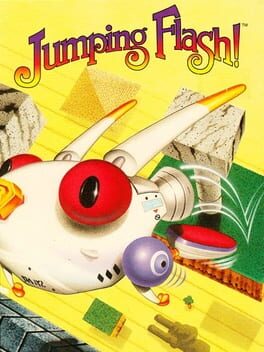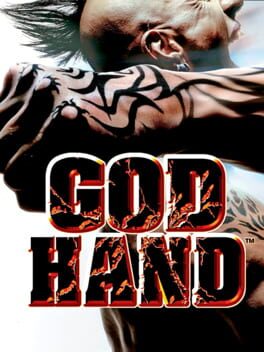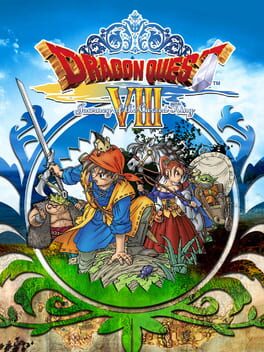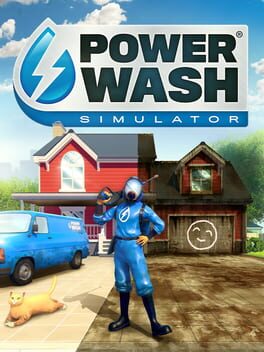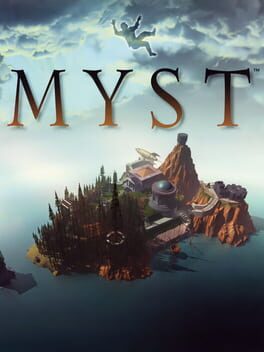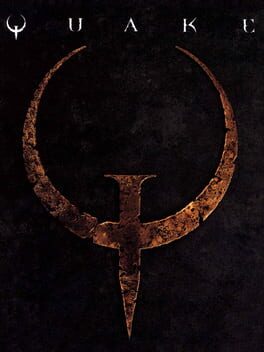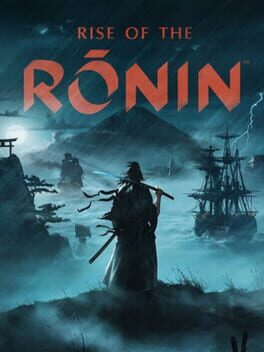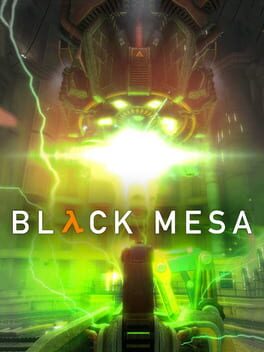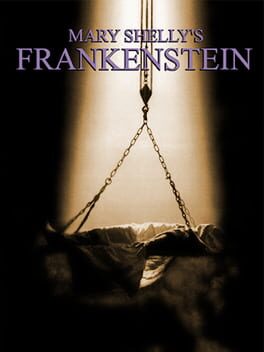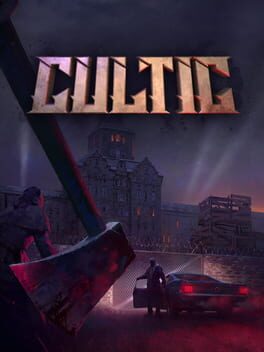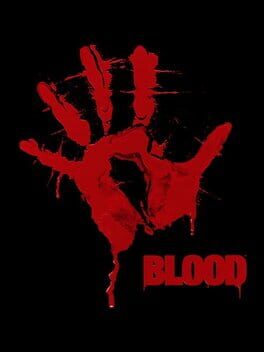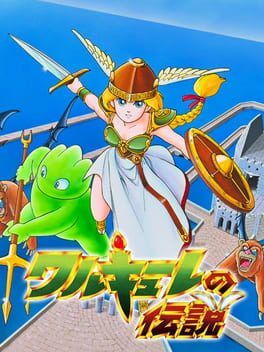DJSCheddar
1490 Reviews liked by DJSCheddar
Jumping Flash!
1995
God Hand
2006
"Character action" has never done it for me. I feel the floaty combos and distant cameras really dampen the impact of combat. I'm so glad that we live in the timeline where instead of representing the future of the Resident Evil series, Devil May Cry became its own franchise. Resident Evil 4 was a game that Capcom attempted to make several times, before begging Mikami to come back to the director's seat, and even he scrapped a couple of false starts before he settled on the game he ought to be making. The change in camera was the big thing that players talked about, but it was the shift in focus and tone that really made Resi 4 so beloved by its biggest fans. Mikami had gained skill, establishing multiple complementary mechanics and tying that to a campaign, but he was also more confident in his own sense of humour and whimsy. Resi 4 was a game with a real sense of personality, but it was compromised by the pressures of the surrounding franchise, the publisher and the fanbase. For his next game, he'd disregard all these aspects and make it entirely for himself.
When I first played God Hand, it took about five seconds before I knew I loved it. It's very much built on the back of Resi 4, but makes no apologies for its eccentricities. It takes the weight and impact of Resident Evil 4's shotgun and puts that behind each punch. Resi 4 utilised the sensibilities of modern games just enough to adopt a mostly useless camera manipulation system to the right analogue stick, but God Hand foregoes those conventions entirely, tethering it to your critical dodge system. God Hand doesn't care about any other game. It's fully confident in what it's doing.
God Hand's vibe is a very divisive thing, and not something you can choose to opt out of, but a truly cultured mind will undoubtedly side with it. Its sense of humour comes from a very specific place. It's a deep affection for Fist of the North Star and low-budget 70s kung fu films, but there's so much fondness for late-80s and early-90s action games, too. It loves the ridiculous, digitised voice clips from Altered Beast and Final Fight. The greatest joy is when you encounter an absurd, one-off, late-game disco miniboss, and he hits you with the same audio clips as the standard grunts from Level 1. This is a game full of explosive barrels and giant fruit. Shinji Mikami started production on Resident Evil 4 trying to fulfil the obligation to make his scariest game ever, and by the end, he got so bored with that direction that he created a giant stone robot Salazar that chased you through brick walls. God Hand was the logical next step for him.
There's a focus to God Hand's ambitions that implies Clover really knew what they had with it. A few ridiculous bosses and minigames notwithstanding, the levels are typically fairly boxy and nondescript. All the attention is on the distribution of enemies and items. It's spectacularly un-fancy. Flat ground and big brick walls that disappear when the camera gets too close to them. It doesn't care. The fighting feels great, and we're having a great time with all these stupid baddies. Fuck everything else.
Your moveset is fully customisable. Between levels, you're given the opportunity to buy new moves, and apply them to your controls, either as specials tethered to a specific button combination, or even as part of the standard combo you get while mashing the square button. It offers players real versatility as they figure out their preferred playstyles, and what works for them, while trying something less intuitive can open you up to new approaches. There are quick kicks and punches that overwhelm opponents, heavy-damage moves that take longer to pull off, guard breaks, and long-range attacks that can help with crowd control. There are certain moves and dodges that are highly exploitable, and risk breaking the game's balance. Clover are aware of this though, and whenever they found a strategy that made the game boring, they made sure to penalise you for using it by boosting the difficulty massively whenever you try it.
That's the big feature. The difficulty. God Hand starts out really hard, and when the game registers that you've dodged too many attacks or landed too many successive hits, it gets harder. This was a secret system in Resi 4, but in God Hand, it's part of your on-screen HUD, always letting you know when you've raised or lowered a difficulty level. Enemies hit harder, health pick-ups drop less frequently, and attacks become harder to land. The game's constantly drawing you to the edge of your abilities, and if you die, you have to try the entire section again from the start. It never feels too dispiriting, though. You retain all cash you've picked up after you died, and you feel encouraged by a drop in difficulty. If you do well enough on your next attempt, it won't take long before the difficulty gets back to where it was. There's also some fun surprises for those who get good enough to maintain a Level 3 or Level Die streak for long enough, with some special enemy spawns and stuff. You feel rewarded for getting good, but never patronised or pandered to. Your reward is a game that felt as thrilling as it did when you first tried it.
It's the little eccentricities in God Hand's design that I really admire. Pick up a barrel and Gene will instantly shift his direction to the nearest enemy, eliminating any extraneous aiming bullshit, and pushing your attention towards the opportunity for some cheap long-distance damage. If an item spawns, it remains there until you pick it up, giving you the opportunity to save it for when you really need it, even if the backtracking route becomes a little ridiculous. Since the camera is so stubbornly committed to viewing Gene's back, they've implemented a radar system to keep track of surrounding enemies, and it makes little sense in the context of the scenario, but the game doesn't care about that stuff. It's another thing that makes the fights against gorillas and rock stars more fun, so run with it. Between each section of the game, you're given the opportunity to save, or warp to a kind of mid-game hub world, with a shop, training area and casino, which you can use to unlock better moves and upgrades when you need them most. You can gain money by taking the honest route and chipping away at its toughest challenges, or take the less honourable route with slot machines and gambling on poison chihuahua races. It's blunt, utilitarian, and it's entirely complementary to the way God Hand feels to play.
It's the consistency in tone and intention that completes the package. God Hand knows what it is, and how it feels, and it never betrays that. It doesn't obsess over lore or characters, but it really has fun in introducing new baddies and scenarios to put you in. And I really like its taste. I like that all the big bosses meet up at a secret hell table to exchange barbs between levels. I like the fight on an enormous Venetian gondola. I like the dumb, weird, repetitive soundtrack. The developers are world-class talents, and they just wanted to make a dumb, stupid, fun game.
I probably ought to give the soundtrack a little more credit. This is from Masafumi Takada, out on loan from Grasshopper Manufacture before he became a real gun for hire, working on Vanquish, Kid Icarus: Uprising, Danganronpa and Smash Bros Ultimate. He's great at elaborate, high-energy compositions, but his work on God Hand is some of his dumbest stuff. It's great. The constant Miami 5-0 surf rock, the warbling Elvis boss fight music, and the Flight of the Bumblebee guitar for the fight against a giant fly. He's having the time of his life on this one, fully liberated from the pressures to convey a consistent tone or atmosphere. It's stunning work, and he makes the correct call every time he has to write a new piece of BGM for God Hand.
Shinij Mikami is a bit of an enigma, and his work on Resident Evil has unfortunately typecast him as a horror director, but he's never expressed a real affinity for the genre. He was put into that position under an obligation to Ghouls 'n Ghosts' Tokuro Fujiwara, and the game he ended up making was full of corny heroes and giant snakes. The subject matter was a shock to audiences in the mid-nineties, but in reality, it wasn't that far removed from his work on SNES Aladdin. By my estimation, God Hand's the closest we've come to seeing the real Mikami through his work. He's made Resident Evil 4, and he wants to leave that behind him, but EA and ZeniMax kept dragging him back to his biggest hit.
God Hand feels like the only point in history God Hand could have happened, and it's pretty wild that it did in the first place. I mean, it makes sense that once you hand Capcom the Resi 4 Gold Master disc, they'll let you do whatever you want, but they were so rattled by the result that they fired all of their key talent and started making calls to Canada to produce Dead Rising 2. Confidence in Japanese development was at an all-time low after 2006, and the PS3 and Xbox 360 resulted in some of the most embarrassing entries in many legacy franchises. The PlayStation was born out of a SNES project, and that ethos was what drove the first decade of Sony Computer Entertainment. Afterwards, a new game proposal would not be greenlit without referencing the design of the latest Grand Theft Auto. The Konami, Namco, Square and Capcom that we have today don't reflect who they were in the nineties and early 2000s. To me, God Hand feels like the final page of that chapter. But, man, what a fucking statement to close out on.
When I first played God Hand, it took about five seconds before I knew I loved it. It's very much built on the back of Resi 4, but makes no apologies for its eccentricities. It takes the weight and impact of Resident Evil 4's shotgun and puts that behind each punch. Resi 4 utilised the sensibilities of modern games just enough to adopt a mostly useless camera manipulation system to the right analogue stick, but God Hand foregoes those conventions entirely, tethering it to your critical dodge system. God Hand doesn't care about any other game. It's fully confident in what it's doing.
God Hand's vibe is a very divisive thing, and not something you can choose to opt out of, but a truly cultured mind will undoubtedly side with it. Its sense of humour comes from a very specific place. It's a deep affection for Fist of the North Star and low-budget 70s kung fu films, but there's so much fondness for late-80s and early-90s action games, too. It loves the ridiculous, digitised voice clips from Altered Beast and Final Fight. The greatest joy is when you encounter an absurd, one-off, late-game disco miniboss, and he hits you with the same audio clips as the standard grunts from Level 1. This is a game full of explosive barrels and giant fruit. Shinji Mikami started production on Resident Evil 4 trying to fulfil the obligation to make his scariest game ever, and by the end, he got so bored with that direction that he created a giant stone robot Salazar that chased you through brick walls. God Hand was the logical next step for him.
There's a focus to God Hand's ambitions that implies Clover really knew what they had with it. A few ridiculous bosses and minigames notwithstanding, the levels are typically fairly boxy and nondescript. All the attention is on the distribution of enemies and items. It's spectacularly un-fancy. Flat ground and big brick walls that disappear when the camera gets too close to them. It doesn't care. The fighting feels great, and we're having a great time with all these stupid baddies. Fuck everything else.
Your moveset is fully customisable. Between levels, you're given the opportunity to buy new moves, and apply them to your controls, either as specials tethered to a specific button combination, or even as part of the standard combo you get while mashing the square button. It offers players real versatility as they figure out their preferred playstyles, and what works for them, while trying something less intuitive can open you up to new approaches. There are quick kicks and punches that overwhelm opponents, heavy-damage moves that take longer to pull off, guard breaks, and long-range attacks that can help with crowd control. There are certain moves and dodges that are highly exploitable, and risk breaking the game's balance. Clover are aware of this though, and whenever they found a strategy that made the game boring, they made sure to penalise you for using it by boosting the difficulty massively whenever you try it.
That's the big feature. The difficulty. God Hand starts out really hard, and when the game registers that you've dodged too many attacks or landed too many successive hits, it gets harder. This was a secret system in Resi 4, but in God Hand, it's part of your on-screen HUD, always letting you know when you've raised or lowered a difficulty level. Enemies hit harder, health pick-ups drop less frequently, and attacks become harder to land. The game's constantly drawing you to the edge of your abilities, and if you die, you have to try the entire section again from the start. It never feels too dispiriting, though. You retain all cash you've picked up after you died, and you feel encouraged by a drop in difficulty. If you do well enough on your next attempt, it won't take long before the difficulty gets back to where it was. There's also some fun surprises for those who get good enough to maintain a Level 3 or Level Die streak for long enough, with some special enemy spawns and stuff. You feel rewarded for getting good, but never patronised or pandered to. Your reward is a game that felt as thrilling as it did when you first tried it.
It's the little eccentricities in God Hand's design that I really admire. Pick up a barrel and Gene will instantly shift his direction to the nearest enemy, eliminating any extraneous aiming bullshit, and pushing your attention towards the opportunity for some cheap long-distance damage. If an item spawns, it remains there until you pick it up, giving you the opportunity to save it for when you really need it, even if the backtracking route becomes a little ridiculous. Since the camera is so stubbornly committed to viewing Gene's back, they've implemented a radar system to keep track of surrounding enemies, and it makes little sense in the context of the scenario, but the game doesn't care about that stuff. It's another thing that makes the fights against gorillas and rock stars more fun, so run with it. Between each section of the game, you're given the opportunity to save, or warp to a kind of mid-game hub world, with a shop, training area and casino, which you can use to unlock better moves and upgrades when you need them most. You can gain money by taking the honest route and chipping away at its toughest challenges, or take the less honourable route with slot machines and gambling on poison chihuahua races. It's blunt, utilitarian, and it's entirely complementary to the way God Hand feels to play.
It's the consistency in tone and intention that completes the package. God Hand knows what it is, and how it feels, and it never betrays that. It doesn't obsess over lore or characters, but it really has fun in introducing new baddies and scenarios to put you in. And I really like its taste. I like that all the big bosses meet up at a secret hell table to exchange barbs between levels. I like the fight on an enormous Venetian gondola. I like the dumb, weird, repetitive soundtrack. The developers are world-class talents, and they just wanted to make a dumb, stupid, fun game.
I probably ought to give the soundtrack a little more credit. This is from Masafumi Takada, out on loan from Grasshopper Manufacture before he became a real gun for hire, working on Vanquish, Kid Icarus: Uprising, Danganronpa and Smash Bros Ultimate. He's great at elaborate, high-energy compositions, but his work on God Hand is some of his dumbest stuff. It's great. The constant Miami 5-0 surf rock, the warbling Elvis boss fight music, and the Flight of the Bumblebee guitar for the fight against a giant fly. He's having the time of his life on this one, fully liberated from the pressures to convey a consistent tone or atmosphere. It's stunning work, and he makes the correct call every time he has to write a new piece of BGM for God Hand.
Shinij Mikami is a bit of an enigma, and his work on Resident Evil has unfortunately typecast him as a horror director, but he's never expressed a real affinity for the genre. He was put into that position under an obligation to Ghouls 'n Ghosts' Tokuro Fujiwara, and the game he ended up making was full of corny heroes and giant snakes. The subject matter was a shock to audiences in the mid-nineties, but in reality, it wasn't that far removed from his work on SNES Aladdin. By my estimation, God Hand's the closest we've come to seeing the real Mikami through his work. He's made Resident Evil 4, and he wants to leave that behind him, but EA and ZeniMax kept dragging him back to his biggest hit.
God Hand feels like the only point in history God Hand could have happened, and it's pretty wild that it did in the first place. I mean, it makes sense that once you hand Capcom the Resi 4 Gold Master disc, they'll let you do whatever you want, but they were so rattled by the result that they fired all of their key talent and started making calls to Canada to produce Dead Rising 2. Confidence in Japanese development was at an all-time low after 2006, and the PS3 and Xbox 360 resulted in some of the most embarrassing entries in many legacy franchises. The PlayStation was born out of a SNES project, and that ethos was what drove the first decade of Sony Computer Entertainment. Afterwards, a new game proposal would not be greenlit without referencing the design of the latest Grand Theft Auto. The Konami, Namco, Square and Capcom that we have today don't reflect who they were in the nineties and early 2000s. To me, God Hand feels like the final page of that chapter. But, man, what a fucking statement to close out on.
(real hardware, PS2) suffers from an attempt to be luxurious. to have big beautiful vistas that are both visible and walkable, DQ settles for long loading (?) sequences in between battles, unskippable battle animations, and slow walking. in a given amount of time you can either walk half-way across a dirt road in 8 or you can cross an entire continent in 4. DQ isn't exactly the most riveting game to play so taking its ease of use and quickness out really hurts this one. play this one while eating dinner, you'll have ample time to fork your food in between button presses
PowerWash Simulator
2021
Very much enjoyed my time with this. Extremely relaxing and satisfying. Knows it's job and gets it done. However, I'm only giving stars for every player that is allowed to play campaign mode with you (including yourself) because it is absolutely fucking stupid that you can only play it with one other friend (at least make another campaign mode that you can progress through with more people) and I SHOULD be giving this ONE STAR for the even more STUPID fact that only the host can earn trophies and enhanced equipment (more or less) in campaign mode while the person helping their campaign along doesn't get ANYTHING (more or less). Along with other little tedious issues here that also shouldn't at all be a problem, this game is an excellent example of how all the stupid little things can add up and taint a pretty solid product. Absolutely no regrets with my time spent beating the campaign with my friend (while the game forced us to leave our others friends behind to DIE) and some solo stuff I did but also COME ON.
Myst
1993
Behold, my 1500th video game! This special occasion warrants nothing less than a super special review. So, what did I think? Well first, some backstory.
This past year or 2, I've been obsessed with playing games that are considered foundational. Sometimes, I don't enjoy them but I'm still glad I played them for the historical value alone which has been the case for games such as Colossal Cave Adventure, Mystery House, or Portopia. Other times, I find some of my unexpected favourite games that are actually very fun such as Wizardry, Fantasy Zone, or... oh yeah, another game by Myst's developers called The Manhole!
When I played The Manhole and its 3D remake last year, I was very captivated! These are 2 games where there is no real objective but to take in the scenery. Just explore and find hilarious imagery while listening to wacky characters. No win condition, no lose condition, no timer, no stress. In a way, this is a really avant garde method of showing that video games are more than their title suggests. That being, they aren't just "games" played for the sake of winning but perhaps important pieces of art.
With how hyped up Myst has been over the years, I decided I would make it my 1500th game on Backloggd (Jesus I've been on this site for years) knowing that it would be something special and, well....
Look. I immensely respect what Myst is going for. I really love how inspired it is, and I am sure the pre-rendered graphics were mindblowing to 1993 audiences. It's neat how several of my beloved games such as Drowned God were blatantly inspired by it, and it's arguably the most important game in the last 30 or so years due to how it was the big boom for PC gaming the world needed.
Yet, I can't feel passionately about it the way I can with The Manhole or Wizardry or even the likes of Colossal Cave Adventure. It is hard for me to be captivated by Myst's legacy when many point and click/adventure games predate it and, in my opinion, have far better QOL, gameplay, and storytelling.
As far as point and click games from before 1993 go, I have a lot of favourites. Uninvited felt like a very kinetic and replayable game with a unique horror feel. Monkey Island 1-2 are still some of the most entertaining and hilarious games I've experienced, boasting incredible artstyles and early popularization of dynamic music. The Manhole, again, was one of the very first entertainment CD-roms and it's still rather fun. Alter Ego having barely any pictures and still being one of the most engaging, deeply written games I've experienced. Hell, when looking at niche Japanese games I'm impressed at how Cosmology of Kyoto, Otogirisou, or Ihatovo Monogatari managed to breathe new life into the game medium as a whole, displaying such artistry that even the likes of Roger Ebert were impressed.
All this is to say that I don't understand at all why Myst is often defended on the basis of "well it's a 30 year old game" especially when other point-and-clicks like Monkey Island before it are still popular today. Hell, Monkey Island is probably much more fun to revisit for the average player. Monkey Island doesn't receive memes like this, at least certainly not with any frequency https://pbs.twimg.com/media/E9tXrGBWYAYBtfc.png
When trying to wrap my head around what made Myst so popular beyond the graphics, I looked at the development history behind the game and found this https://youtu.be/EWX5B6cD4_4
Myst was meant to give players a bang for their buck, resulting in a design based around "brute force" real estate to explore. With no win or lose conditions, the player could feasibly spend weeks if not months on the game. And it doesn't stop there, there is what seems to be a deliberate lack of QOL.
I found myself constantly frustrated by Myst. The save feature restarts the player at the beginning of the area rather than saving their progress, contrary to other even older adventure games. Batteries near the dock drain rather fast and need to be constantly recharged. Activating the large tree elevator is an annoying process. The main character is too much of a moron to carry two pages at a time, so if the player wants to experience every FMV they are forced to go through the same area twice, some of which can be rather confusing to navigate. The sound puzzles where the player must match 5 different sound effects in a row with very large margin of error might as well just say "fuck the deaf and the tone deaf players" good lord. I personally felt the pace broken when 10 minutes into the game I was compelled to read 4 mini-novels in a row. And perhaps most importantly, I had trouble making out a single full sentence in the red and blue books due to the overloaded static noises in the cutscenes.
Are there things I appreciate about Myst? Sure! This is far from a game without merit. The minimalist presentation is rather beautiful, with the pre-rendered images and FMVs still holding their own against photorealistic graphics from far stronger hardware. The atmosphere can be rather immersive a lot of the time, with the sound effects being very convincing for every action in the game. I rec listening to this part of the Ars Technica documentary, since it explains things better than I could https://youtu.be/EWX5B6cD4_4?t=860
It's truly a technical engineering feat. Also, after the player obtains the true ending, they are allowed to just explore the island. It really gives me the impression their earlier work on The Manhole helped shape some decisions in this game, and that's just lovely.
Well, that's Myst. It's a technically impressive game, but far from a fun one in my opinion. It was only while writing this review that, perhaps, it hit me.
Everybody has their own unique perspective and experiences that shapes them into the EPIC GAMER they are today. I saved Myst for a rainy day, subconsciously putting it on a pedestal in my head. Most of the people who told me how much they loved Myst mentioned it being a formative artistic experience for them. Could it be because I had the liberty of playing so many untranslated JP adventure games, more modern adventure games, and so forth before Myst, its impact was lost on me?
1500 games is a lot of fucking games. There is an alternate universe out there where I was fascinated by Myst and fell in love with it, rather than found it frustrating in my mid 20s. In fact, this is what one of the developers theorized; only maybe half of players even left the first island. Yet, so many young players who discovered the game left with quite an impression, that they played something which resonated with them FOR the unfamiliar mystique, rather than despite it https://youtu.be/EWX5B6cD4_4?t=1070
When I started typing this review, I wasn't sure if I was happy I played Myst. Yet now, I feel confident I am happy it was my 1500th game. It was not a waste of time, but a good reminder of how games are more than what I play. They are artistic statements, impressive feats of software development, and parts of our culture. The cynic in me can say Myst is a subpar adventure game that only had any success due to the photorealistic graphics. Yet, I'm more inclined to ask one thing:
Is there any game which better embodies the culture of early PC gaming and the appeal of pre-rendered graphics?
God, I fucking love video games.
https://www.youtube.com/watch?v=e49OXXBX3Ko
This past year or 2, I've been obsessed with playing games that are considered foundational. Sometimes, I don't enjoy them but I'm still glad I played them for the historical value alone which has been the case for games such as Colossal Cave Adventure, Mystery House, or Portopia. Other times, I find some of my unexpected favourite games that are actually very fun such as Wizardry, Fantasy Zone, or... oh yeah, another game by Myst's developers called The Manhole!
When I played The Manhole and its 3D remake last year, I was very captivated! These are 2 games where there is no real objective but to take in the scenery. Just explore and find hilarious imagery while listening to wacky characters. No win condition, no lose condition, no timer, no stress. In a way, this is a really avant garde method of showing that video games are more than their title suggests. That being, they aren't just "games" played for the sake of winning but perhaps important pieces of art.
With how hyped up Myst has been over the years, I decided I would make it my 1500th game on Backloggd (Jesus I've been on this site for years) knowing that it would be something special and, well....
Look. I immensely respect what Myst is going for. I really love how inspired it is, and I am sure the pre-rendered graphics were mindblowing to 1993 audiences. It's neat how several of my beloved games such as Drowned God were blatantly inspired by it, and it's arguably the most important game in the last 30 or so years due to how it was the big boom for PC gaming the world needed.
Yet, I can't feel passionately about it the way I can with The Manhole or Wizardry or even the likes of Colossal Cave Adventure. It is hard for me to be captivated by Myst's legacy when many point and click/adventure games predate it and, in my opinion, have far better QOL, gameplay, and storytelling.
As far as point and click games from before 1993 go, I have a lot of favourites. Uninvited felt like a very kinetic and replayable game with a unique horror feel. Monkey Island 1-2 are still some of the most entertaining and hilarious games I've experienced, boasting incredible artstyles and early popularization of dynamic music. The Manhole, again, was one of the very first entertainment CD-roms and it's still rather fun. Alter Ego having barely any pictures and still being one of the most engaging, deeply written games I've experienced. Hell, when looking at niche Japanese games I'm impressed at how Cosmology of Kyoto, Otogirisou, or Ihatovo Monogatari managed to breathe new life into the game medium as a whole, displaying such artistry that even the likes of Roger Ebert were impressed.
All this is to say that I don't understand at all why Myst is often defended on the basis of "well it's a 30 year old game" especially when other point-and-clicks like Monkey Island before it are still popular today. Hell, Monkey Island is probably much more fun to revisit for the average player. Monkey Island doesn't receive memes like this, at least certainly not with any frequency https://pbs.twimg.com/media/E9tXrGBWYAYBtfc.png
When trying to wrap my head around what made Myst so popular beyond the graphics, I looked at the development history behind the game and found this https://youtu.be/EWX5B6cD4_4
Myst was meant to give players a bang for their buck, resulting in a design based around "brute force" real estate to explore. With no win or lose conditions, the player could feasibly spend weeks if not months on the game. And it doesn't stop there, there is what seems to be a deliberate lack of QOL.
I found myself constantly frustrated by Myst. The save feature restarts the player at the beginning of the area rather than saving their progress, contrary to other even older adventure games. Batteries near the dock drain rather fast and need to be constantly recharged. Activating the large tree elevator is an annoying process. The main character is too much of a moron to carry two pages at a time, so if the player wants to experience every FMV they are forced to go through the same area twice, some of which can be rather confusing to navigate. The sound puzzles where the player must match 5 different sound effects in a row with very large margin of error might as well just say "fuck the deaf and the tone deaf players" good lord. I personally felt the pace broken when 10 minutes into the game I was compelled to read 4 mini-novels in a row. And perhaps most importantly, I had trouble making out a single full sentence in the red and blue books due to the overloaded static noises in the cutscenes.
Are there things I appreciate about Myst? Sure! This is far from a game without merit. The minimalist presentation is rather beautiful, with the pre-rendered images and FMVs still holding their own against photorealistic graphics from far stronger hardware. The atmosphere can be rather immersive a lot of the time, with the sound effects being very convincing for every action in the game. I rec listening to this part of the Ars Technica documentary, since it explains things better than I could https://youtu.be/EWX5B6cD4_4?t=860
It's truly a technical engineering feat. Also, after the player obtains the true ending, they are allowed to just explore the island. It really gives me the impression their earlier work on The Manhole helped shape some decisions in this game, and that's just lovely.
Well, that's Myst. It's a technically impressive game, but far from a fun one in my opinion. It was only while writing this review that, perhaps, it hit me.
Everybody has their own unique perspective and experiences that shapes them into the EPIC GAMER they are today. I saved Myst for a rainy day, subconsciously putting it on a pedestal in my head. Most of the people who told me how much they loved Myst mentioned it being a formative artistic experience for them. Could it be because I had the liberty of playing so many untranslated JP adventure games, more modern adventure games, and so forth before Myst, its impact was lost on me?
1500 games is a lot of fucking games. There is an alternate universe out there where I was fascinated by Myst and fell in love with it, rather than found it frustrating in my mid 20s. In fact, this is what one of the developers theorized; only maybe half of players even left the first island. Yet, so many young players who discovered the game left with quite an impression, that they played something which resonated with them FOR the unfamiliar mystique, rather than despite it https://youtu.be/EWX5B6cD4_4?t=1070
When I started typing this review, I wasn't sure if I was happy I played Myst. Yet now, I feel confident I am happy it was my 1500th game. It was not a waste of time, but a good reminder of how games are more than what I play. They are artistic statements, impressive feats of software development, and parts of our culture. The cynic in me can say Myst is a subpar adventure game that only had any success due to the photorealistic graphics. Yet, I'm more inclined to ask one thing:
Is there any game which better embodies the culture of early PC gaming and the appeal of pre-rendered graphics?
God, I fucking love video games.
https://www.youtube.com/watch?v=e49OXXBX3Ko
On release, Wonder was quickly crowned the new king of the 2D Mario series by legions of folks who’d been burned deeply by the New Super Mario Bros. tetrology's shallow and uninspired aesthetic. I was there. I’ve played all of these games. 2D Mario games are important enough to me that I will play them on a TV, even if it means passers-by can look in and clearly tell that I’m not filing my tax returns. I finished Wonder with 100% completion on the weekend of October 20th, 2023 (unless you count the standees. I don’t). I’ve replayed all of its levels at least twice, with and without grabbing each Wonder Flower. You know I like this game a heck of a lot. Nevertheless, I’ve got a lot to say, not all of it good. This is gonna sound a bit dry.
On Super Mario Bros. Wonder (OR — "No Country for New Super Mario Bros.")
Visually, Wonder is closer to my Dream Mario than any other this side of Yoshi’s Island, and I do hope the next one commits even harder to the cartoonishness of this aesthetic. My first impression was that it had the best control of any game in the 2D series, and in most respects, I do still believe that. The “New” games carried with them this lumbering heaviness that I’m glad we’ve shed away. The Elephant power-up is a bit undercooked, but the other two additions appropriately shake up the player's relationship with enemies and the environment. Just being able to jump into enemies from below while at a full sprint makes the Drill a treat, even without considering its burrowing ability. The removal of a flight-based power was likely due to multiplayer, but in principle, it helps the game stay centered squarely on running and jumping, and encourages creative use of the Bubble Flower (which, yes, is more or less a retooled Bubble Yoshi from off of NSMBU). The Demon’s Souls online feature is welcome; I didn’t see myself playing as a guardian angel in a Mario game, but here we are. Badges are a solid addition too, especially for newcomers. I can play as Daisy. Awesome stuff. Promising. Shame that, to my taste, there’s a lot left on the table here.
Every stage of this game locks its enemies and visuals and stage gimmicks down almost completely; you’re not likely to see much crossover. There’s one rolla-koopa stage, one hoppycat stage, one condart stage. These guys are stuck in their zones. It results in an impressive level of variety, but also prevents the game from meaningfully building on concepts from stage to stage. You don’t get that blending of flavors you’ll find in the series’ earliest entries. In this respect, it’s arguably even more formulaic than the games it’s trying to subvert. Each level’s gimmicks undergo a similar arc before being put away, each of them with a Wonder Flower to find which activates a minigame or setpiece. Nothing so plain as the well-documented and scientifically-proven "Four Step Level Design" of New Super Mario Bros., they just remembered to add the sugar. Would people still be talking about Mario 3's Angry Sun if you had to pop a regularly-mandated Wonder Flower to activate it? I don’t think it helps that these stages are threaded together as loosely as they are.
Playing into its save feature, Super Mario World invited its players to revisit levels for alternate exits and hidden secrets. Wonder doubles down on that attitude, with a wide-open map and only a single file per user. You’re meant to dig around in these levels and scour the world, but there isn’t really a whole lot to find. Yes, there are large coins to collect, tops of flagpoles to grab, but – and I hate to grumble – these pale in comparison to the discovery of warp zones, unique power-ups, and routes which alter the trajectory of a playthrough. I think they’d have been better off hiding badges within full stages than keeping them in shops or bespoke levels on the overworld. I’m of the opinion that collectibles should feel immediately tangible and exciting. Wonder sidesteps the checklist school of design for the most part, but I’d like to see it drop outta these games completely.
Here's what I'm getting at – I don’t think Wonder is adept at curating its adventure, and I don’t get the impression that its developers made that a priority. There’s a sort of halfhearted effort to add a single story beat to each world, and it's unconvincing. Possible plants just don't tend to pay off. The talking flowers never do. Stages are clustered together with respect to difficulty and theming, but any pretense of a “flow” between them, that levels together form an arc, is rarely suggested. A level is an island unto itself. It’s because the game isn’t concerned with its own replayability, actively obfuscating the option to start a New Game. It’s because Wonder isn’t all that interested in blending ideas between stages. It’s because the “Wonder” gimmick, ironically, requires each level to follow the same general beats.
I came for an album, and what I got was a collection of singles. They’re good, even great singles, but I don’t think it comes together as a whole game in the same way each of the old classics did. I hope Wonder is a sign that Nintendo is open to getting even more experimental with the conventions of this series (maybe cut out the world map next time, have one continuous game of back-to-back platforming levels), and I’m glad it was well received. You can feel those seasoned designers stretching their legs with this one — it beats out the New Super Marios on charm factor alone — and I squeezed every last drop I could out of it. I believe greater heights are within reach for this series, but if this is the last for a while, I'll still be more than appreciative that Wonder got its moment in the spotlight.
(...if you'd like to see where this falls on my list of the Thirty-Five Best Games I Played in 2023, you can check it out here. Thanks for reading!)
On Super Mario Bros. Wonder (OR — "No Country for New Super Mario Bros.")
Visually, Wonder is closer to my Dream Mario than any other this side of Yoshi’s Island, and I do hope the next one commits even harder to the cartoonishness of this aesthetic. My first impression was that it had the best control of any game in the 2D series, and in most respects, I do still believe that. The “New” games carried with them this lumbering heaviness that I’m glad we’ve shed away. The Elephant power-up is a bit undercooked, but the other two additions appropriately shake up the player's relationship with enemies and the environment. Just being able to jump into enemies from below while at a full sprint makes the Drill a treat, even without considering its burrowing ability. The removal of a flight-based power was likely due to multiplayer, but in principle, it helps the game stay centered squarely on running and jumping, and encourages creative use of the Bubble Flower (which, yes, is more or less a retooled Bubble Yoshi from off of NSMBU). The Demon’s Souls online feature is welcome; I didn’t see myself playing as a guardian angel in a Mario game, but here we are. Badges are a solid addition too, especially for newcomers. I can play as Daisy. Awesome stuff. Promising. Shame that, to my taste, there’s a lot left on the table here.
Every stage of this game locks its enemies and visuals and stage gimmicks down almost completely; you’re not likely to see much crossover. There’s one rolla-koopa stage, one hoppycat stage, one condart stage. These guys are stuck in their zones. It results in an impressive level of variety, but also prevents the game from meaningfully building on concepts from stage to stage. You don’t get that blending of flavors you’ll find in the series’ earliest entries. In this respect, it’s arguably even more formulaic than the games it’s trying to subvert. Each level’s gimmicks undergo a similar arc before being put away, each of them with a Wonder Flower to find which activates a minigame or setpiece. Nothing so plain as the well-documented and scientifically-proven "Four Step Level Design" of New Super Mario Bros., they just remembered to add the sugar. Would people still be talking about Mario 3's Angry Sun if you had to pop a regularly-mandated Wonder Flower to activate it? I don’t think it helps that these stages are threaded together as loosely as they are.
Playing into its save feature, Super Mario World invited its players to revisit levels for alternate exits and hidden secrets. Wonder doubles down on that attitude, with a wide-open map and only a single file per user. You’re meant to dig around in these levels and scour the world, but there isn’t really a whole lot to find. Yes, there are large coins to collect, tops of flagpoles to grab, but – and I hate to grumble – these pale in comparison to the discovery of warp zones, unique power-ups, and routes which alter the trajectory of a playthrough. I think they’d have been better off hiding badges within full stages than keeping them in shops or bespoke levels on the overworld. I’m of the opinion that collectibles should feel immediately tangible and exciting. Wonder sidesteps the checklist school of design for the most part, but I’d like to see it drop outta these games completely.
Here's what I'm getting at – I don’t think Wonder is adept at curating its adventure, and I don’t get the impression that its developers made that a priority. There’s a sort of halfhearted effort to add a single story beat to each world, and it's unconvincing. Possible plants just don't tend to pay off. The talking flowers never do. Stages are clustered together with respect to difficulty and theming, but any pretense of a “flow” between them, that levels together form an arc, is rarely suggested. A level is an island unto itself. It’s because the game isn’t concerned with its own replayability, actively obfuscating the option to start a New Game. It’s because Wonder isn’t all that interested in blending ideas between stages. It’s because the “Wonder” gimmick, ironically, requires each level to follow the same general beats.
I came for an album, and what I got was a collection of singles. They’re good, even great singles, but I don’t think it comes together as a whole game in the same way each of the old classics did. I hope Wonder is a sign that Nintendo is open to getting even more experimental with the conventions of this series (maybe cut out the world map next time, have one continuous game of back-to-back platforming levels), and I’m glad it was well received. You can feel those seasoned designers stretching their legs with this one — it beats out the New Super Marios on charm factor alone — and I squeezed every last drop I could out of it. I believe greater heights are within reach for this series, but if this is the last for a while, I'll still be more than appreciative that Wonder got its moment in the spotlight.
(...if you'd like to see where this falls on my list of the Thirty-Five Best Games I Played in 2023, you can check it out here. Thanks for reading!)
Quake
1996
Rise of the Ronin
2024
i am so fucking tired of every game being sekiro. please god can one acton game come out where you do something besides read animations and deflect on the right key frames. can one historical game about the tokugawa shogunate have some personality to it and not be more boring than reading a book about the actual events. can one open world game come out and have shit to do in it thats fun and beneficial for more than just clearing icons and getting bigger numbers. anyway, Like a Dragon: Ishin! is available now on digital storefronts everywhere
Black Mesa
2015
they 'fixed' the MP5 and shotgun so instead of needing to rely on a whole arsenal of explosives, traps and weirdo guns you can just handle every single fight with two guns
they 'fixed' the HECU marines so instead of erratic freaks they just kinda stand around and impose a health tax if you look around a corner
they 'fixed' xen by making it look like it was trending on art station and replacing all the weird cool levels with Half-Life 2 puzzles for some godforsaken reason
they 'fixed' the HECU marines so instead of erratic freaks they just kinda stand around and impose a health tax if you look around a corner
they 'fixed' xen by making it look like it was trending on art station and replacing all the weird cool levels with Half-Life 2 puzzles for some godforsaken reason
Fallout
1997
Believe it or not a co-worker of mine talked about the SCD version of this game with me once, out of complete curiosity I booted it up for like a hot minute.
It's an incredibly by the books adventure game where you walk around finding items that go to whatever situation you're trying to solve. Well until a mutant appears and you suddenly start fighting the fucker exactly like a 2D fighting game. Unfortunately, the game actually spoils this by giving an option for "practise fights" at the main menu, but hey hopefully I made you chuckle a little bit with the sudden genre change.
Anyways, my co-worker/friend/acquaintance said he couldn't beat Victor Frankenstein in this game. It turns out he sucked and doesn't know how to fight CPU opponents, you just need to find the one move, which in this case it was the running shoulder charge that does multiple hits (qcf+a I think). I continued the game for a while until I got bored of being lost in the SCD's horribly compressed overhead segment of the town and turned the game off.
That's the only reason I played, to gloat about being good at beating CPUs. So yeah, I'll be rubbing it in his face tomorrow assuming I remember.
It's an incredibly by the books adventure game where you walk around finding items that go to whatever situation you're trying to solve. Well until a mutant appears and you suddenly start fighting the fucker exactly like a 2D fighting game. Unfortunately, the game actually spoils this by giving an option for "practise fights" at the main menu, but hey hopefully I made you chuckle a little bit with the sudden genre change.
Anyways, my co-worker/friend/acquaintance said he couldn't beat Victor Frankenstein in this game. It turns out he sucked and doesn't know how to fight CPU opponents, you just need to find the one move, which in this case it was the running shoulder charge that does multiple hits (qcf+a I think). I continued the game for a while until I got bored of being lost in the SCD's horribly compressed overhead segment of the town and turned the game off.
That's the only reason I played, to gloat about being good at beating CPUs. So yeah, I'll be rubbing it in his face tomorrow assuming I remember.
The Oregon Trail
1971
Cultic
2022
The Real RE4 Remake
I really like the aesthetic, the real photos being crammed into these pixely textures gives it this crispness, it reminds me of Quake in that horror-y warmth and antique mystery, the menu sounds match this too in their soft, melodic nature so combined with my recent Ethel Cain obsession I loved this part of the game. There’s a sense of this being old and battered rather than a nice product which I think is great. I think it plays its hand too early gameplay wise though, you get most of the weapon in the first level and I don’t think it works as well after that! I liked when I was limited in stuff, there was a bit in a dark area where I was low on ammo and kind of forced into charging about with the axe, which with the creepy atmosphere and the rustic graphics made it feel like I was playing as a character in a horror film. Once my inventory filled up it went into familiar dashing about, bunnyhopping and unloading ammo into crowds of enemies. Fun but I wish so many boomer shooters didn’t feel the need to fall into the same action game type extremes. I want more shooters that are more thoughtful in how they give you stuff and aren’t just pushing for a straight forward, guns blazing power trip. Maybe it’s my fault for wanting another Condemned in this but I’ve played a few newer horror themed indie shooters where I keep coming away with a similar feeling and this got really close to what I wanted at points. Not everything needs to be strictly an action game or a horror game, it’d be nice to get more stuff in the middle.
I really like the aesthetic, the real photos being crammed into these pixely textures gives it this crispness, it reminds me of Quake in that horror-y warmth and antique mystery, the menu sounds match this too in their soft, melodic nature so combined with my recent Ethel Cain obsession I loved this part of the game. There’s a sense of this being old and battered rather than a nice product which I think is great. I think it plays its hand too early gameplay wise though, you get most of the weapon in the first level and I don’t think it works as well after that! I liked when I was limited in stuff, there was a bit in a dark area where I was low on ammo and kind of forced into charging about with the axe, which with the creepy atmosphere and the rustic graphics made it feel like I was playing as a character in a horror film. Once my inventory filled up it went into familiar dashing about, bunnyhopping and unloading ammo into crowds of enemies. Fun but I wish so many boomer shooters didn’t feel the need to fall into the same action game type extremes. I want more shooters that are more thoughtful in how they give you stuff and aren’t just pushing for a straight forward, guns blazing power trip. Maybe it’s my fault for wanting another Condemned in this but I’ve played a few newer horror themed indie shooters where I keep coming away with a similar feeling and this got really close to what I wanted at points. Not everything needs to be strictly an action game or a horror game, it’d be nice to get more stuff in the middle.
Blood
1997
This game is metal as hell.
On paper this should be something you’ve already seen, but in execution it isn’t like anything you’ve seen. Blowing up zombies with dynamite, blasting cultists with a double-barrel shotgun, eating hearts to heal instead of medpacks, everything in this game feels equal parts edgy and extremely fun. The main character, Caleb, is betrayed by the god he worships and comes back to life to get his revenge and after killing him, the words spoken from his mouth are “Good, bad… I’m the guy with the gun” and in the cutscene that plays second after he blasts a poorly modeled dude (the cutscenes in this game are something) with the tommy gun one-handed and just leaves without saying a single word like he didn’t just kill a demonic god.
Even if it’s really tough, the enjoyment I get from this game is simply unmatched. The variety in the arsenal is quite interesting, instead of a pistol as a one of the first guns you get (the actual first gun you get is a pitchfork), they give you a flare gun, which is fine to take out enemies one by one, but has a secondary fire that can take out a bunch of enemies by setting them on fire at the cost of like 6 flare ammo, but the gun you’ll be using the most is the sawn-off shotgun. A really, really powerful shotgun. If there’s one word to describe the arsenal in this game, it is powerful. Not just the shotgun is powerful, but also the dynamite - blowing stuff up is powerful, and you’ll be doing that A LOT, it’s even necessary to progress in certain moments so get used to it -, and therocket launcher sorry, the NAPALM launcher, which not only acts as a normal rocket launcher but can also put on fire nearby enemies due to splash damage, and even the tommy gun. If there’s one thing Blood has, it’s that it makes justice the word “power fantasy”.
It’s no secret that First Person Shooters have always been inspired by cinema. Duke Nukem is basically an Arnold Schwarzenegger knock-off. Blood is inspired by horror and gorefest movies. Every enemy has like two or three, probably more, different ways to die, but all of them can be blown up into pieces. Zombies’ heads fall off and you can kick them a soccer ball. While Caleb might not be the most memorable FPS character - although he's still a total badass -, Blood is a really memorable game. I would say that “it is great because it just wants you to have fun”, but basically every other game from that era just wanted you to have fun, ESPECIALLY First Person Shooters. What makes this game good is not what it wants but what it does, and what Blood does is putting a bunch of cultists and zombies gathered together in an enclosed space so you can use the alt fire of the spray can (did I mention there’s a makeshift flamethrower?) and watch all of them burn. At a time when videogames were at the center of discussion for allegedly promoting violence and satanism, Blood provides just that and goes full-on with it.
The levels look more like actual places and seem to be interconnected, at least in the first chapter, so there’s some kind of continuity to it, it feels like some kind of progress is being made. Unlike Duke Nukem 3D, in which levels consisted of a bunch of arenas that kind of resemble real life places but lack any continuity from one to another, here in the first chapter you wake up in a grave next to a chapel and the you blow up a hole in a wall that gets you to a train station in which you get on a train and the next level is in the Phantom Express and then you crash the train and now you’re at Dark Carnival, and there’s a secret level that takes you to the House of Horrors. It feels like you’re going somewhere, like progress is being made, even if the story isn't that important. This is what I like the most about the Cryptic Passage expansion, the continuity between levels. At the start of each level, most of the time, and not just on Cryptic Passage, you can turn around and see the place you just came from, and at the end of some levels you can even see the place you’re going. The level of detail in every level helps the sense of place. I mean, the devil is in the details, so…
Everything in this game screams personality. From the little nods to horror/slasher/B movies to the speed of the combat. Even if some of the later levels don’t live up to the greatness of the first episode, as well as some abrupt difficulty spikes - the balance is sometimes pretty weird, I had certain situations in which I’d round a corner to be greeted by a shotgun blast to the face I had no way of predicting. The alt fire of the dynamite makes it a timed explosive so it bounces on walls, you even have proximity and remote dynamite, but the correct way to use them is to throw them around a corner full of enemies you already know they’re there, but for that you have to see them before them see you so most of the time these options are useless and it’s best to roll with it, shotgun blast included. That is, unless the game expects me to quick-save quick-load every corner, in which scenario the tension and pace of the combat are gone -, it is still fun to blow up with dynamite everything that moves.
At the risk of sounding like an edgy teenager, I’ll say that gorefest movies or games are usually not my cup of tea when they're all about the gore and nothing else, but I can’t help it, Blood is just too goddamn fun.
Also, I forgot to mention that enemies like the zombie, the cultist, and probably some more are pixelated sprites of (or were modeled after) modified dolls/toys. Some other games did similar stuff; Human enemies in Rise of the Triad: Dark War were sprites of real people in costumes, you can find some recorded footage of the making of around the web. This kind of stuff is always super cool to see and brings an extra charm that games nowadays can't allow themselves to have.
On paper this should be something you’ve already seen, but in execution it isn’t like anything you’ve seen. Blowing up zombies with dynamite, blasting cultists with a double-barrel shotgun, eating hearts to heal instead of medpacks, everything in this game feels equal parts edgy and extremely fun. The main character, Caleb, is betrayed by the god he worships and comes back to life to get his revenge and after killing him, the words spoken from his mouth are “Good, bad… I’m the guy with the gun” and in the cutscene that plays second after he blasts a poorly modeled dude (the cutscenes in this game are something) with the tommy gun one-handed and just leaves without saying a single word like he didn’t just kill a demonic god.
Even if it’s really tough, the enjoyment I get from this game is simply unmatched. The variety in the arsenal is quite interesting, instead of a pistol as a one of the first guns you get (the actual first gun you get is a pitchfork), they give you a flare gun, which is fine to take out enemies one by one, but has a secondary fire that can take out a bunch of enemies by setting them on fire at the cost of like 6 flare ammo, but the gun you’ll be using the most is the sawn-off shotgun. A really, really powerful shotgun. If there’s one word to describe the arsenal in this game, it is powerful. Not just the shotgun is powerful, but also the dynamite - blowing stuff up is powerful, and you’ll be doing that A LOT, it’s even necessary to progress in certain moments so get used to it -, and the
It’s no secret that First Person Shooters have always been inspired by cinema. Duke Nukem is basically an Arnold Schwarzenegger knock-off. Blood is inspired by horror and gorefest movies. Every enemy has like two or three, probably more, different ways to die, but all of them can be blown up into pieces. Zombies’ heads fall off and you can kick them a soccer ball. While Caleb might not be the most memorable FPS character - although he's still a total badass -, Blood is a really memorable game. I would say that “it is great because it just wants you to have fun”, but basically every other game from that era just wanted you to have fun, ESPECIALLY First Person Shooters. What makes this game good is not what it wants but what it does, and what Blood does is putting a bunch of cultists and zombies gathered together in an enclosed space so you can use the alt fire of the spray can (did I mention there’s a makeshift flamethrower?) and watch all of them burn. At a time when videogames were at the center of discussion for allegedly promoting violence and satanism, Blood provides just that and goes full-on with it.
The levels look more like actual places and seem to be interconnected, at least in the first chapter, so there’s some kind of continuity to it, it feels like some kind of progress is being made. Unlike Duke Nukem 3D, in which levels consisted of a bunch of arenas that kind of resemble real life places but lack any continuity from one to another, here in the first chapter you wake up in a grave next to a chapel and the you blow up a hole in a wall that gets you to a train station in which you get on a train and the next level is in the Phantom Express and then you crash the train and now you’re at Dark Carnival, and there’s a secret level that takes you to the House of Horrors. It feels like you’re going somewhere, like progress is being made, even if the story isn't that important. This is what I like the most about the Cryptic Passage expansion, the continuity between levels. At the start of each level, most of the time, and not just on Cryptic Passage, you can turn around and see the place you just came from, and at the end of some levels you can even see the place you’re going. The level of detail in every level helps the sense of place. I mean, the devil is in the details, so…
Everything in this game screams personality. From the little nods to horror/slasher/B movies to the speed of the combat. Even if some of the later levels don’t live up to the greatness of the first episode, as well as some abrupt difficulty spikes - the balance is sometimes pretty weird, I had certain situations in which I’d round a corner to be greeted by a shotgun blast to the face I had no way of predicting. The alt fire of the dynamite makes it a timed explosive so it bounces on walls, you even have proximity and remote dynamite, but the correct way to use them is to throw them around a corner full of enemies you already know they’re there, but for that you have to see them before them see you so most of the time these options are useless and it’s best to roll with it, shotgun blast included. That is, unless the game expects me to quick-save quick-load every corner, in which scenario the tension and pace of the combat are gone -, it is still fun to blow up with dynamite everything that moves.
At the risk of sounding like an edgy teenager, I’ll say that gorefest movies or games are usually not my cup of tea when they're all about the gore and nothing else, but I can’t help it, Blood is just too goddamn fun.
Also, I forgot to mention that enemies like the zombie, the cultist, and probably some more are pixelated sprites of (or were modeled after) modified dolls/toys. Some other games did similar stuff; Human enemies in Rise of the Triad: Dark War were sprites of real people in costumes, you can find some recorded footage of the making of around the web. This kind of stuff is always super cool to see and brings an extra charm that games nowadays can't allow themselves to have.
